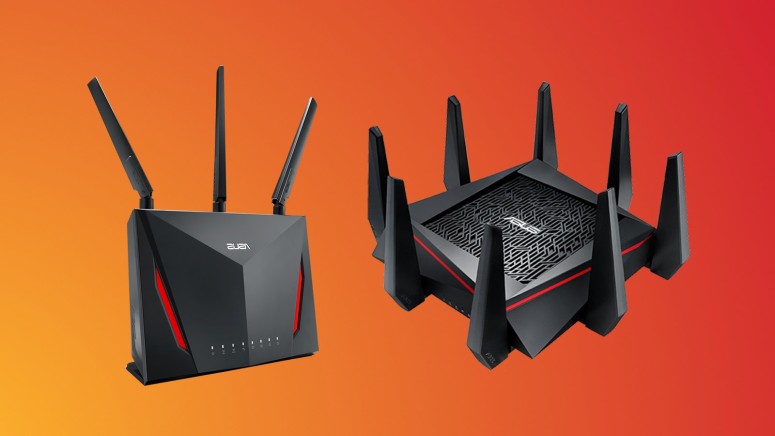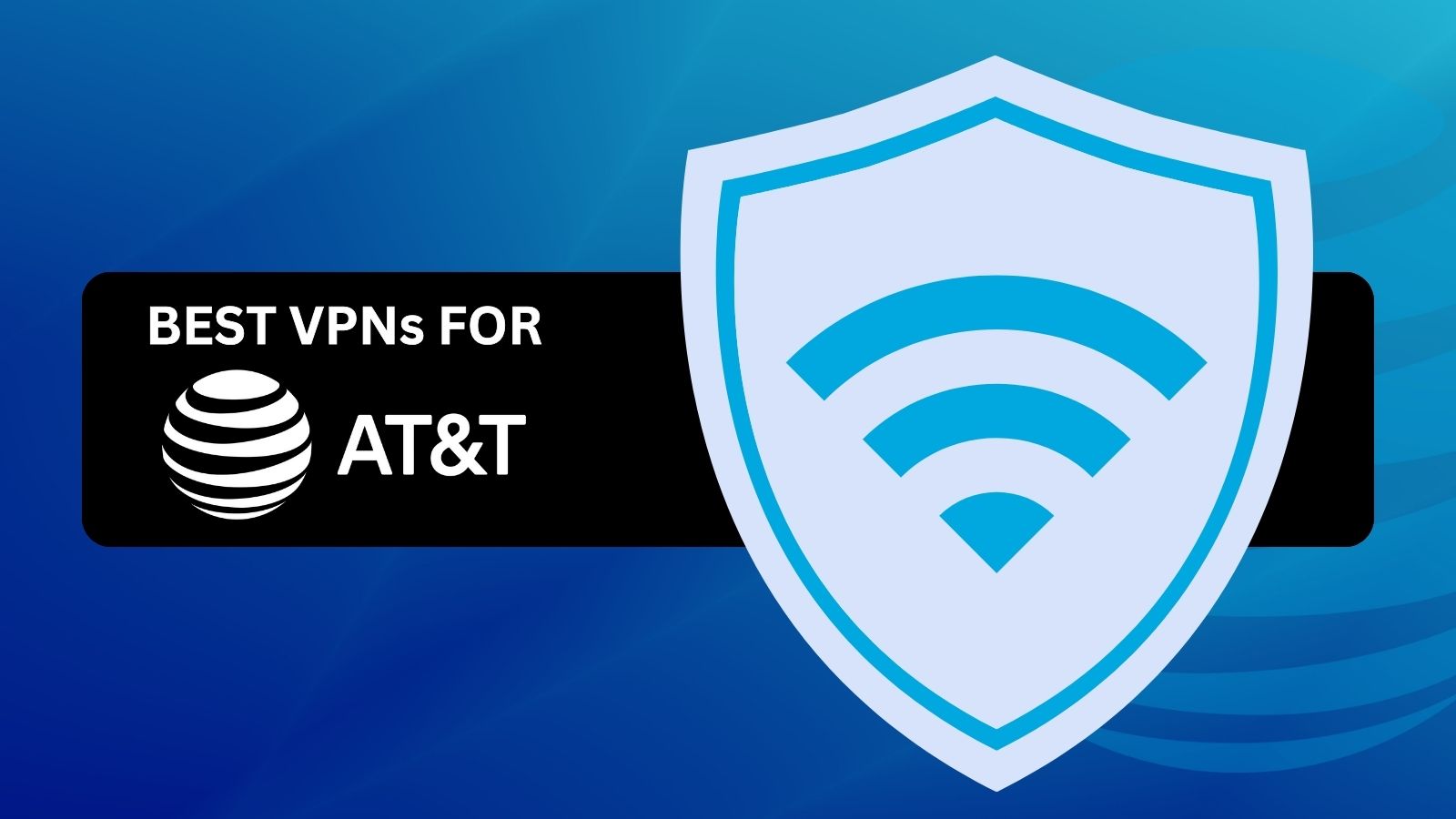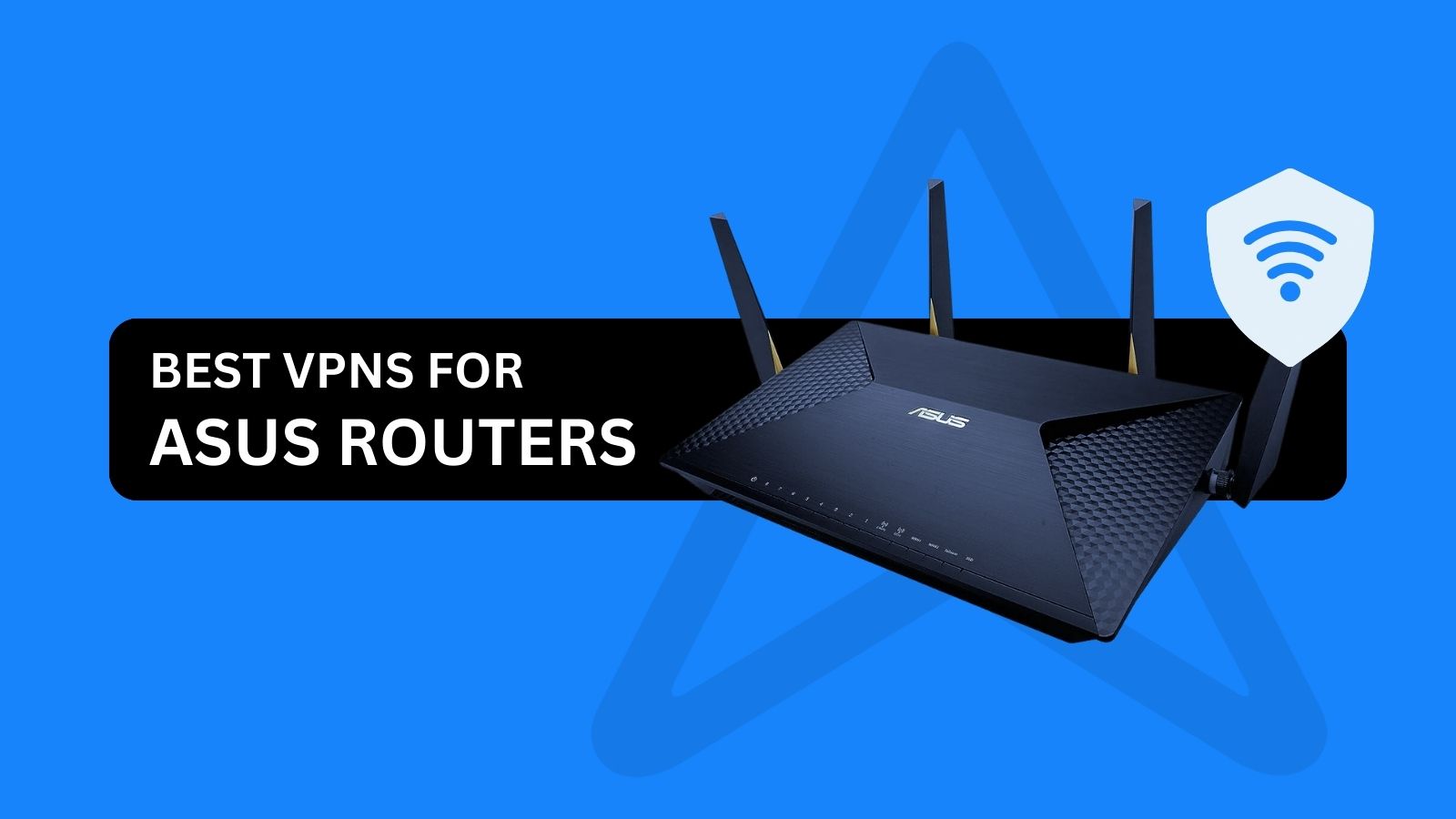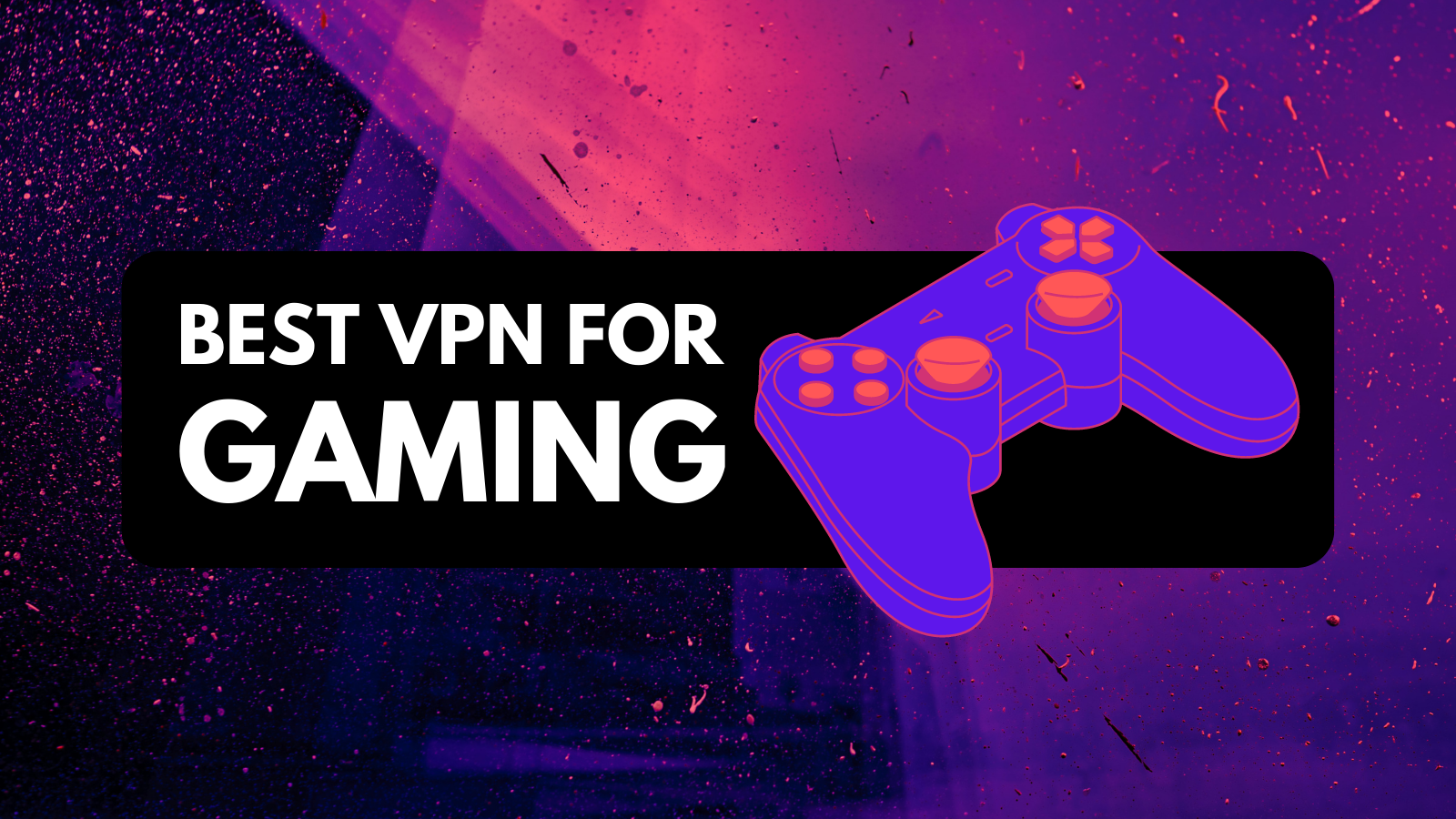10 Best VPN Routers To Buy in 2025
Our experts have reviewed 53 VPN providers, which were put through extensive rounds of testing. To learn more about that process, here’s how we review VPNs, where we explain our criteria and our policy of being fully transparent.
Using a capable VPN router, you can protect your entire household (and all your Web-connected devices) at once. However, the truth is that finding the best VPN router isn't that easy, as there's plenty to pay attention to when choosing a device that powers your Wi-Fi. And of course, you have digital privacy protection on top of that - and you want to do that right.
We understand that you're looking for a VPN router, and you also want a list of bulletproof options. So, if you want to start with some incredibly solid suggestions, here you'll find the best VPN-compatible routers available today. These units range from inexpensive and basic to pricey but feature-rich. We made sure to include something for just about anyone. If you are not sure what VPN router to pick and how to install VPN on a router, use the provided link to learn more.
All of the following options are considered the best VPN routers available. However, aside from being compatible with VPNs, they also bring additional options such as media servers, malware protection, gaming-friendly features, and more.
Best VPN Routers
Without further ado, we present to you the 10 best VPN routers, suitable for different needs and budgets.
1. NETGEAR Nighthawk R7000
We'll start by saying that Nighthawk R7000 is easily one of the best all-around routers made by NETGEAR. This is a dual-band router, supporting both 2.4Ghz and 5Ghz networks (up to 1,900 Mbps in total). Thanks to its three external antennas, it can cover up to 1,800 square feet - and there are technologies that can further amplify its reach.
At the moment, NETGEAR's R7000 seems like an excellent option for home users who need a reliable and future-proof router. It supports up to 30 devices, automatically adjusting its performance based on the needs of each individual device. It's also incredibly easy to set-up and comes with the Nighthawk app, which is a joy to use.
Even though this router comes with solid Web UI that lets you do all kinds of optimizations, we recommend installing a custom firmware if you want to run a VPN service. (Here's a guide to help you choose the right VPN for a Netgear router.) Make sure to read more about DD-WRT firmware, as this is the best way to open up this router to a whole wealth of additional options.
- Pros: Supports DD-WRT; For up to 30 devices; Plenty of highly advanced technologies; Beamforming available; Suitable for more advanced home users; Stable and fast performance.
- Cons: The unit's fan can be noticeable at times.
2. Synology RT2600ac
Synology is known for its range of powerful routers that come at an affordable cost. That's the situation with Synology's RT2600ac router as well, which encompasses everything that any home of small offer could ever need.
This model brings speeds of up to 2,530 Mbps, which makes it a future-proof investment. It also brings features such as MU-MIMO, a hardware acceleration engine, Web traffic monitoring, and plenty more. In other words, you get fast speeds, the ability to filter online content, set up parental controls, and plenty more.
In terms of its VPN functionality, Synology's RT2600ac delivers in a big way. Thanks to its Synology Router Manager (this router's operating system), setting up a VPN should pose no problem even for inexperienced users. And on top of that, you can turn this router into a VPN server to secure and provide smooth access for remote connections.
- Pros: Wide coverage; User-friendly Web interface; Content filtering; Great for connecting with NAS devices; High-end media server capabilities; Work as a VPN server as well.
- Cons: A somewhat higher price when compared to 2600 AC routers.
3. TP-Link Archer A7
Not too long ago, we published a guide to the best TP-Link routers, and the Archer A7 took one of the most prominent positions there. That's because this is a great all-around model that comes with everything that an average home user might need. However, you'll also find some high-end features here like an integrated USB port that acts as a media server.
Speaking of more advanced features, the Archer C7 comes with parental controls and the ability to set-up a guest Wi-Fi network. You can share access to your home Wi-Fi via a QR code, which comes really helpful in many situations.
Many TP-Link routers come with a capable Web UI, using which you can set up a custom VPN service. (Here are our favorite VPNs for TP-Link routers.) The Archer A7 is not an exception, even though it also offers you a way to install DD-WRT firmware. In case you'd like to tinker with this device, installing DD-WRT is a good way to expand its capabilities.
- Pros: Speedy performance; Integrated USB port; Works with Amazon Alexa.
- Cons: TP-Link's Web UI is helpful, but might be limiting for high-end users.
4. ASUS RT-AC86U (AC2900)
ASUS is no stranger to routers, and this company offers an incredibly wide range of products. With that said, here we have a very interesting product that brings features you'd expect from more expensive routers. Therefore, if you're after value, you'll find it here.
First and foremost, ASUS' RT-AC86U comes with a powerful 1.8GHz dual-core processor, which plays well with the router's advanced features. Speaking of those, you'll find MU-MIMO, adaptive QoS, as well as support for speeds of up to 2,900 Mbps. As we can see, this router caters both to more demanding home users, as well as gamers looking for an affordable router.
In terms of its software, the RT-AC86U doesn't disappoint. You get protection against all common Internet-based attacks, the ability to block malicious websites, as well as protection for your Web-connected devices in case of an infection. And of course, there's the ability to use any VPN service, routing your Web traffic as per your needs.
- Pros: Strong and reliable performance; Extra-wide coverage; Great for gaming; Supports ASUS' AiMesh technology; Full support for ASUSWRT features; Great for VPNs.
- Cons: Somewhat complex software (especially for first-time users).
5. Linksys WRT-AC3200
Even though the design of this router is nothing to brag about, it comes with highly powerful specs. Inside, you'll find a 1.8GHz processor capable of handling numerous devices at once. Setting it up might be a bit technical, but you'll find useful guides online that make this process as simple as it can be.
Since it's DD-WRT compatible, you can even expand its VPN compatibility and tinker with this unit to get the most out of it. Check out our guide to the top-choice VPNs for Linksys routers for help selecting the right one.
What's worth mentioning is that Linksys has built-in several advanced features into this unit. For example, a feature called Tri-Stream 160 doubles the 5GHz bandwidth, which is how this router is capable of offering download speeds of up to 3.2Gbps. Also, it comes with Dynamic Frequency Selection, which means that it searches for free channels in your surroundings, ensuring smooth performance.
All in all, Linksys' WRT-AC3200 is a highly valuable product. It's not the most affordably priced out there, but you'll get plenty to play with. It's worth mentioning that it makes the list of top Linksys routers out there. Therefore, we recommend it to more advanced users who want to take full control over their Web connection.
- Pros: Incredibly powerful; Advanced technology; Great for power users.
- Cons: Not the most attractive design.
6. NETGEAR Nighthawk AX8 (RAX80)
Even by simply taking a look at this model, you can conclude that there's something high-end about NETGEAR's Nighthawk RAX80. Without any doubt, this is the best VPN router - if you're not afraid to spend plenty of money and future-proof your Web connection.
Pretty much everything about NETGEAR's RAX80 is high-end. It supports Web speeds of up to 6,000 Mbps (yes, it supports Wi-Fi 6 - the latest standard), and it also comes with a 64-bit 1.8GHz quad-core processor. This makes this router suitable for very large homes, as well for connecting a huge number of devices. Therefore, there's no Web activity that will slow down the RAX80 router - be it 4K streaming, online gaming, or anything else.
In terms of security-related features, you'll find plenty here. You're free to set up your own VPN using RAX80's interface, which shouldn't be a problem even for first-time users. And if you want extra protection, you can rely on NETGEAR Armor (a subscription paid extra). This gets you to keep away online threats, block malicious websites, encrypt you Web traffic, and more.
- Pros: Futuristic design; High-end Web connection speeds; Speedy file-transfer performance over USB ports; Mountable; Future-proof purchase.
- Cons: On the expensive side; Best for Wi-Fi 6 clients (devices).
7. ASUS RT-ACRH13
When buying a VPN router, it's essential to really pay attention to what kinds of features you'll get for a certain price. Of course, going for an ultra-expensive model will get you the best of what today's VPNs offer. However, if you don't want to spend much - you'll need to make some compromises (which are not as drastic as before).
This is precisely where ASUS' RT-ACRH13 router comes into play. It comes at a really affordable price while managing to impress us with its list of features. Speaking of which, you get 2x2 MU-MIMO with combined speeds of up to 1,267 Mbps. So, not the fastest VPN router - but should still meet the needs of home users. Among other features, you get the ASUSWRT Web interface, the ability to use Alexa voice commands, as well ASUS' Android/iOS app for managing your Wi-Fi connectivity.
Considering that this router is powered by ASUSWRT, you're also free to set-up a VPN. And in terms of Web interfaces used to create VPN connections, ASUSWRT strikes the right balance between simplicity and complexity. And once again, all of that is available at a very affordable price, making the RT-ACRH13 one of the best VPN routers. Learn about the top VPNs for ASUS routers in our separate guide.
8. ASUS RT-AC5300
As its design hints, ASUS' RT-AC5300 router is oriented toward gamers primarily. This is an incredibly fast and capable VPN router, supporting Web speeds of up to 5,334 Mbps. It also comes with a whole slate of advanced technologies that allow you to take full advantage of your Wi-Fi connection.
Aside from MU-MIMO, you can also get adaptive QoS (Quality of Service). This means that each of your devices will be treated based on its needs. That's how you'll get the best possible performance when gaming, smooth performance when streaming, and similar. This is accompanied by NitroQAM, which means that you get enhanced support for 802.11ac.
In terms of its VPN-related features, this router supports ASUSWRT. You can use it not only to set-up VPN connections but also fine-tune each individual feature this router offers. Plenty of granularity awaits, which is why we recommend this VPN router to more advanced routers.
- Pros: Amazing performance; Extra-wide Wi-Fi coverage; Highly suitable for gaming; Software interface provides plenty of fine-tuning; Plenty to customize in terms of VPNs.
- Cons: Only one USB 3.0 port; Large-sized devices; On the expensive side.
9. D-Link DIR-867
D-Link comes with a wide range of routers, suitable for different needs and budgets. The company's DIR-867 is an above-average VPN router that's currently one of the bestselling units made by this company.
It comes with a powerful dual-core processor, supports MU-MIMO, and automatically optimizes your Web traffic based on which applications you use and on which devices.
When it comes to VPN services, you are free to use whichever one you want. Running a VPN service is an easy task for this router, even without using custom firmware. However, you are free to install DD-WRT on the DIR-867, if you need more freedom and the ability to fine-tune your Web connection.
- Pros: Dual-band Wi-Fi; Smooth performance; Smart beamforming.
- Cons: D-Link's Web UI isn't the most polished out there.
10. GL.iNet GL-AR300M Mini
The AR300M may not seem all that impressive at first glance, but the concept behind it is pure genius. This is not a VPN router meant to sit in your home and provide protection to your computers. No, this little guy is meant to join your laptop, smartphone, and tablet on your travels to make sure they all get a piece of that VPN goodness.
This capable VPN router packs a mean punch for its size. It has a 650Mhz CPU and 128MB of RAM. That may seem anemic by home router standards, but this is a tiny plastic box after all. Remember that it's only meant to handle two or three devices that you have with you on your travels, rather than the dozen or more devices we typically see with home setups. That's why it also doesn't really matter that the maximum speed of the network is only 300 Mbps. When you're on the road and only using a few devices at a time, that's plenty of bandwidth.
The VPN support of this router is excellent. It runs natively off OpenWRT and is compatible with more than 20 VPN providers out of the box. In general, as long as they can provide 'OPVPN' files, your VPN of choice should work.
- Pros: Lightweight; Travel-friendly; Easy to set up; Solid speeds; OpenVPN + Tor.
- Cons: Not designed for home use.
You've reached the end of our guide to the best VPN routers. With that said, feel free to post your comment below in case of any questions. And also, don't forget to tell us about your pick. Thanks for reading!







